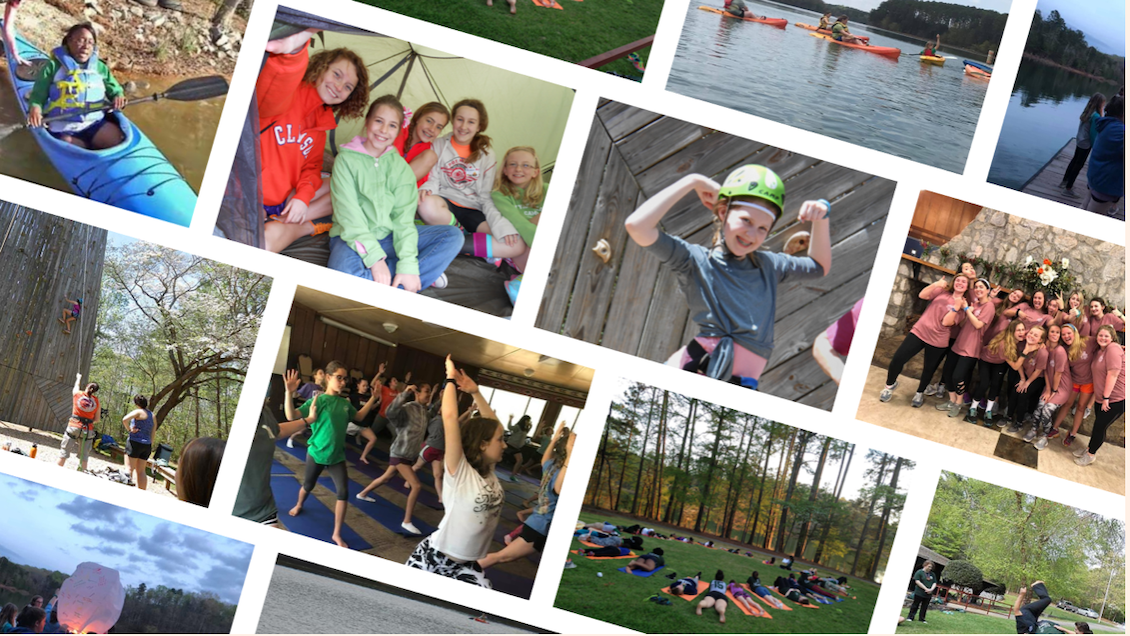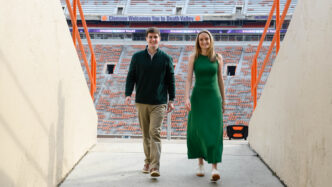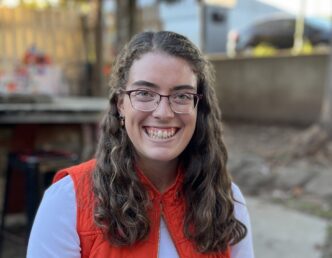More than 10 years ago, Clemson University faculty member Denise Anderson was chatting with a colleague whose daughter made a local high school varsity volleyball team. Anderson was elated for her friend’s child – making varsity as a ninth grader is an impressive feat, she told her friend.
It was impressive, but it was also the only option. The school did not have enough girls to field both varsity and junior varsity teams.
That news did not sit well with Anderson, a student athlete in high school and college and, at the time, a professor in the Clemson University Department of Parks, Recreation and Tourism Management (PRTM). Why would a large school not have enough girls for two volleyball teams?
That question led Anderson to look into the literature, which revealed that this situation was not unusual. Research showed that the participation of girls in traditional sports drops off during the pre-teen years, and those girls rarely substitute that participation with other kinds of physical activity. The reasons for the drop-off are varied – fear, body image issues, and lack of confidence, to name a few. But the result is the same: a lack of physical activity and the pride that comes with it.
This information led Anderson to apply for a grant to hold a weekend camp for middle school girls to encourage activity and self-confidence. Ten years later, that camp – Finding Your Voice – is still going strong, having empowered approximately 400 girls since its inception.
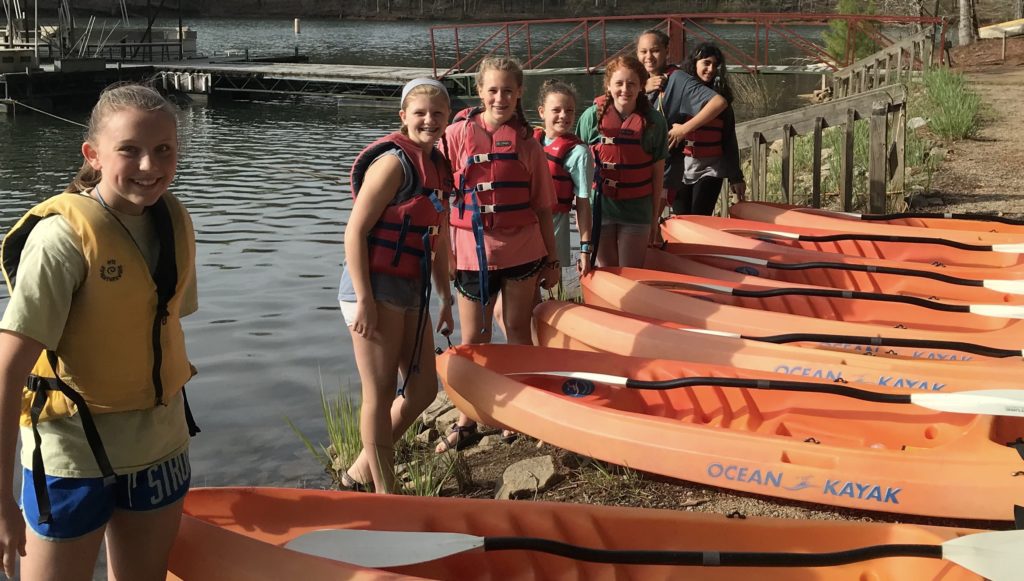
The Clemson University Outdoor Lab, a camp and conference center on Lake Hartwell and part of the College of Behavioral, Social and Health Sciences (CBSHS), hosts the camp. The American Association of University Women provided initial funding, and current supporters include the City of Clemson Parks and Recreation Department, Dabo’s All In Foundation, and Clemson’s Creative Inquiry undergraduate research program.
Anderson, who now serves as CBSHS associate dean for undergraduate studies, faculty affairs and inclusive excellence, teaches a Creative Inquiry course focused on the camp. Her students plan the weekend, serve as camp counselors, and conduct research about its effect on the girls who attend. During the weekend, held each year in April, approximately 40 girls in sixth-eighth grade come together to participate in outdoor activities such as kayaking, yoga, high ropes, backpacking and self-defense.
“The goal is to help girls find a way to be physically active in a way that might be different. It started from the premise that not all girls like to do traditional sports, so what are ways that we can get them physically active with activities that they can do on their own and don’t depend on a team?”
Denise Anderson, CBSHS associate dean for undergraduate studies, faculty affairs and inclusive excellence
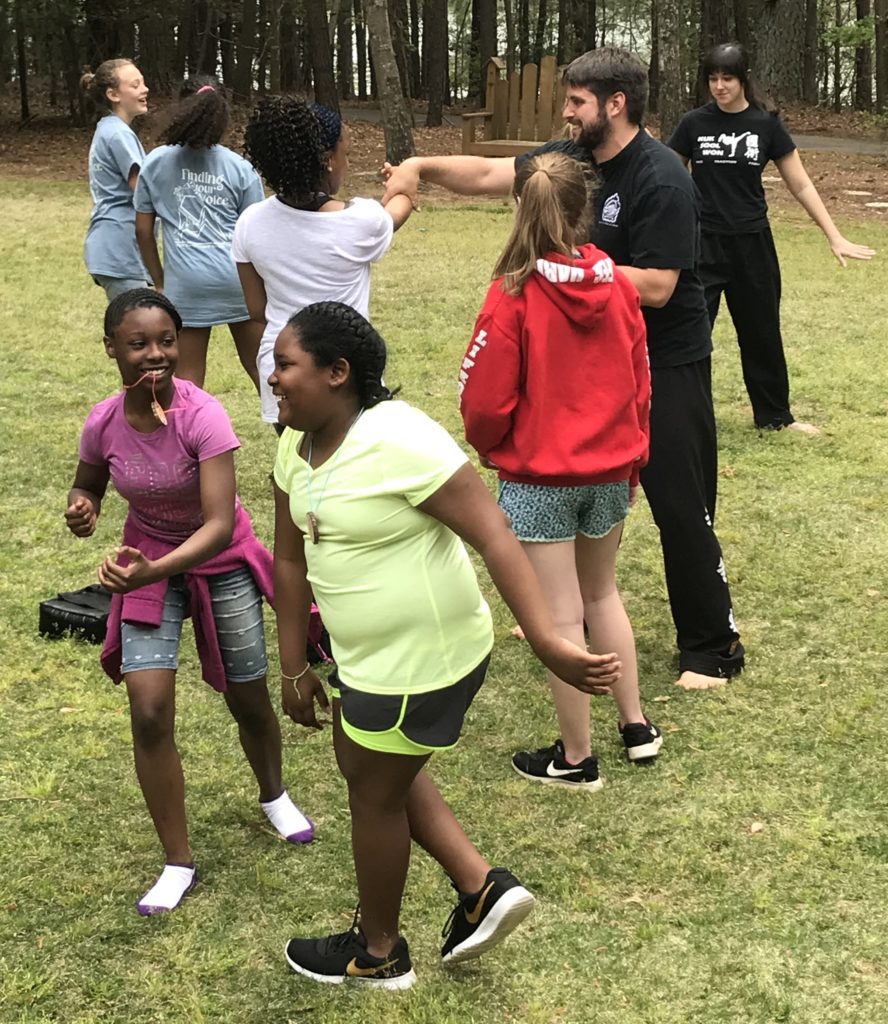
Led by the Creative Inquiry students, select PRTM graduate students, and local, primarily all-women volunteers, the camp also includes traditional ice breakers, campfires, and arts and crafts. Campers share meals with guest speakers who talk about topics such as healthy views of nutrition and social media representation.
While the camp encourages physical activity, the benefits extend far beyond the physical. Anderson’s Creative Inquiry students conduct surveys and focus groups with the campers each year. They find that they feel more self-confident and positive about their bodies after participating in activities that take them beyond their comfort zone. They also become comfortable taking risks socially and building community with people they did not previously know.
“I can’t help but think that those skills will translate when they go back to school and other parts of their lives,” Anderson said.
Taking a Leap
That scenario certainly played out for Lauren Bleuel, who attended Finding Your Voice in seventh and eighth grade. Self-described as quiet and cautious, she attended at the recommendation of a friend but wondered if it would be for her. It did not take her long to come out of her shell and find joy in the activities and company of her new friends.
“I connected with all the girls in my cabin; we got along really well,” Bleuel said. “It not only made me feel better about myself, but it was a great way to connect with other people.”
Within two years of completing the camp, she took another leap – applying for and attending boarding school at the South Carolina Governor’s School for the Arts and Humanities. She said she was less fearful about taking that step because of her camp experiences, especially entering a new environment.
“Camp was only two days, but I do think it helped me to have more confidence,” said Bleuel, who is now a first-year student at Appalachian State University studying violin performance.
A Long-Lasting Impact
As a first-year psychology major at Clemson, Kayleigh Beecher saw a description of Anderson’s Creative Inquiry class – a description that caught her attention because she attended an all-girls camp in middle school. She quickly discovered that the camps were the same; Beecher went to Finding Your Voice in sixth grade. It was a no-brainer that she would get involved.
In the class, she and her classmates learned the basics of research and designed their own study about the influence of the weekend. They discovered that most campers missed sports and other physical activities and lost interest because they were not encouraged to participate. The weekend provided the encouragement and confidence to be more active – and to face other middle school challenges such as conflicts with friends, bullying or peer pressure.
The counselors also found themselves encouraged and inspired by camp, Beecher added. In her case, it helped inform her career path. A 2021 Clemson alumna, she is applying to graduate schools and plans to work in school psychology.
“I don’t think I could have gotten an experience like camp anywhere else. Looking back on it, I continually think of new things I learned from it. I’ve used so much of what I learned – whether it’s the research part or the actual camp part. It’s just something that is continually on my mind, and I continually pull from it. I’m very grateful.”
Kayleigh Beecher, former Finding Your Voice camper and counselor
The next Finding Your Voice camp will be held April 8-10. Registration is still open, and the camp is free. Click here for more information.
The Clemson University College of Behavioral, Social and Health Sciences is a 21st-century, land-grant college that combines work in seven disciplines – Communication; Nursing; Parks, Recreation and Tourism Management; Political Science; Psychology; Public Health Sciences; and Sociology, Anthropology and Criminal Justice – to further its mission of “building people and communities” in South Carolina and beyond.

